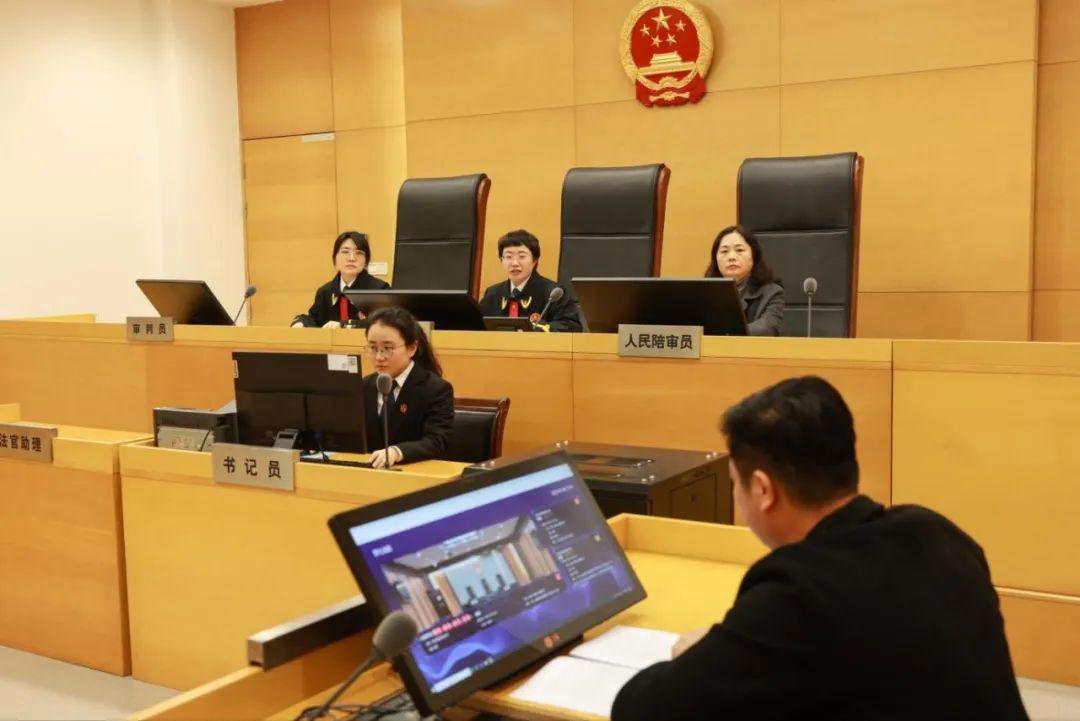Authors: Niu Xiaojing and Xu Xiaohui

Recently, the Jiangsu Provincial High Court released a typical foreign-related case in which a Singaporean investor cooperated with a Chinese citizen to invest in cryptocurrency. The court ruled that "the contract was invalid and the risk was borne by the investor himself", and the Singaporean investor lost all his millions of capital.
Let's take a look at what happened in this case:
In 2019, Singaporean citizen Pan and Chinese citizen Tian jointly invested in a project called "MFA Blockchain". The two parties agreed that Pan would provide the capital and Tian would be responsible for technology and operations. After the project started, Pan actually invested 15.74 million yuan in Tian. However, as time went by, Pan began to worry because he had not seen the funds returned, and urged Tian to return the money. At first, Tian evaded responsibility on the grounds of tight market value. Under Pan's repeated urging, Tian gradually returned 10.6 million yuan to him, but there was still 5.15 million yuan that had not been returned.
Eventually, the account was locked and unable to trade, and all the principal was lost. So Pan filed a lawsuit to return the remaining funds, but the Chinese court directly ruled that the contract was invalid , on the grounds that virtual currency investment is an illegal financial activity in China and violates public order and good morals .
Case outcome: This case was heard by the Yancheng Intermediate Court and the Jiangsu Higher Court. In the end, the court ruled that the parties should bear all the risks and losses by themselves. Pan suffered heavy losses.
This incident reminded me of the sigh of Fairy Zixia: "I guessed the beginning, but I couldn't guess the ending."

When signing the contract, Pan and Tian might have "guessed the beginning" - imagining the skyrocketing value of virtual currency and the dream of financial freedom, but they never guessed the ending: the contract was deemed invalid due to violation of the mandatory provisions of Chinese law, and they lost all their money!
Here, Lawyer Niu wants to share with you that everything is not fine once a contract is signed. If you fail to foresee the risks such as the actual performance of the contract in the future and whether the liability for breach of contract can be implemented, then the carefully designed contract will be like a piece of waste paper.
Therefore, if foreign investors fail to understand local laws and rashly cooperate with mainland Chinese residents in cryptocurrency projects, there will be great risks. In conjunction with this case, let's analyze why the investment funds involved in this case are not protected by Chinese laws, and what risks investors who want to enter domestic Chinese projects in the future need to pay attention to.
Why are overseas crypto investments not protected by Chinese law?
Although Mr. Pan in this case is a Singaporean and is not subject to Chinese law, since the counterparty to the contract is Chinese, once Mr. Pan initiates a lawsuit in China, it can only be handled in accordance with Chinese laws.
Because the Notice on Further Preventing and Dealing with the Risks of Virtual Currency Trading Speculation jointly issued by ten ministries in 2021 has banned cryptocurrency-related business activities, and this notice is a mandatory administrative regulation of China involving foreign exchange control and financial security. Then, according to the Law of the People's Republic of China on the Application of Laws to Foreign-Related Civil Relations and relevant judicial interpretations, relevant mandatory provisions shall be directly applied to foreign-related cases. Therefore, this provision excludes the application of the laws of other countries.
In cases involving illegal activities (such as money laundering, gambling, virtual currency transactions, etc.), Chinese courts tend to deny the validity of the parties' exclusion of the application of Chinese law through arbitration or choice of law clauses. For example, in Case No. 29 of Shanghai Civil Final (2019), the court denied the validity of the parties' choice of foreign law on the grounds that "the contract violated China's mandatory provisions."
In mainland China, cryptocurrencies do not have legal currency status and related transactions are illegal financial activities. Any contract aimed at cryptocurrency investment may be deemed invalid and participants will be required to bear their own losses.
Therefore, when foreign investors make relevant investments, they must not believe the promise of "high returns and low risks" and must verify the Chinese legal regulatory policies on cryptocurrencies before cooperation.
If you were Mr. Pan, you would have a question: if overseas arbitration was agreed upon in the contract and the case was heard in other countries, would your investment be protected?
Is it feasible to stipulate overseas arbitration in currency-related contracts?
If you think that "as long as the contract stipulates arbitration in Singapore and the application of foreign law, it can bypass Chinese legal supervision", then you are thinking too simply.
According to the Law of China on the Application of Law to Foreign-Related Civil Relations, Chinese law directly applies to cases involving financial security and social public interests. Even if the arbitration clause is valid, if the content of the contract violates Chinese law (such as cryptocurrency transactions), the Chinese court may still deny the arbitration agreement or refuse to enforce the award on the grounds of "damage to the public interest."
Although China is a signatory to the New York Convention, in theory it should enforce the legal awards or judgments of the signatory countries. However, there are exceptions to everything. The exception clause of the convention is that if the arbitration award violates the public policy of the country of enforcement (such as China's virtual currency ban), the Chinese court may refuse to recognize and enforce it.
The ruling may eventually become a piece of paper , resulting in no way to seek compensation.
If you think this project will definitely make money and you have to invest, Lawyer Niu has a few suggestions for your reference:
- Absolute red line : Try to avoid participating in any cryptocurrency investment projects linked to citizens/enterprises in China.
Legal review : Consult with professional lawyers familiar with China's Web3 field before cooperation to evaluate the legality of the contract.
Risk coverage : If you insist on investing, ensure that your partner has executable assets overseas and agree on a high amount of liability for breach of contract (but there is still a risk of being deemed invalid).
Conclusion
China’s regulation of cryptocurrencies is relatively strict. Even if jurisdiction clauses are designed to target Chinese citizens or domestic cryptocurrency investments, there may be systemic risks of legal invalidity and unenforceability.
Just as Fairy Zixia could not guess the outcome of her fate, you will never be able to guess the outcome of currency-related disputes in mainland China.
If you have similar legal issues, please contact Mankiw’s professional legal team!











